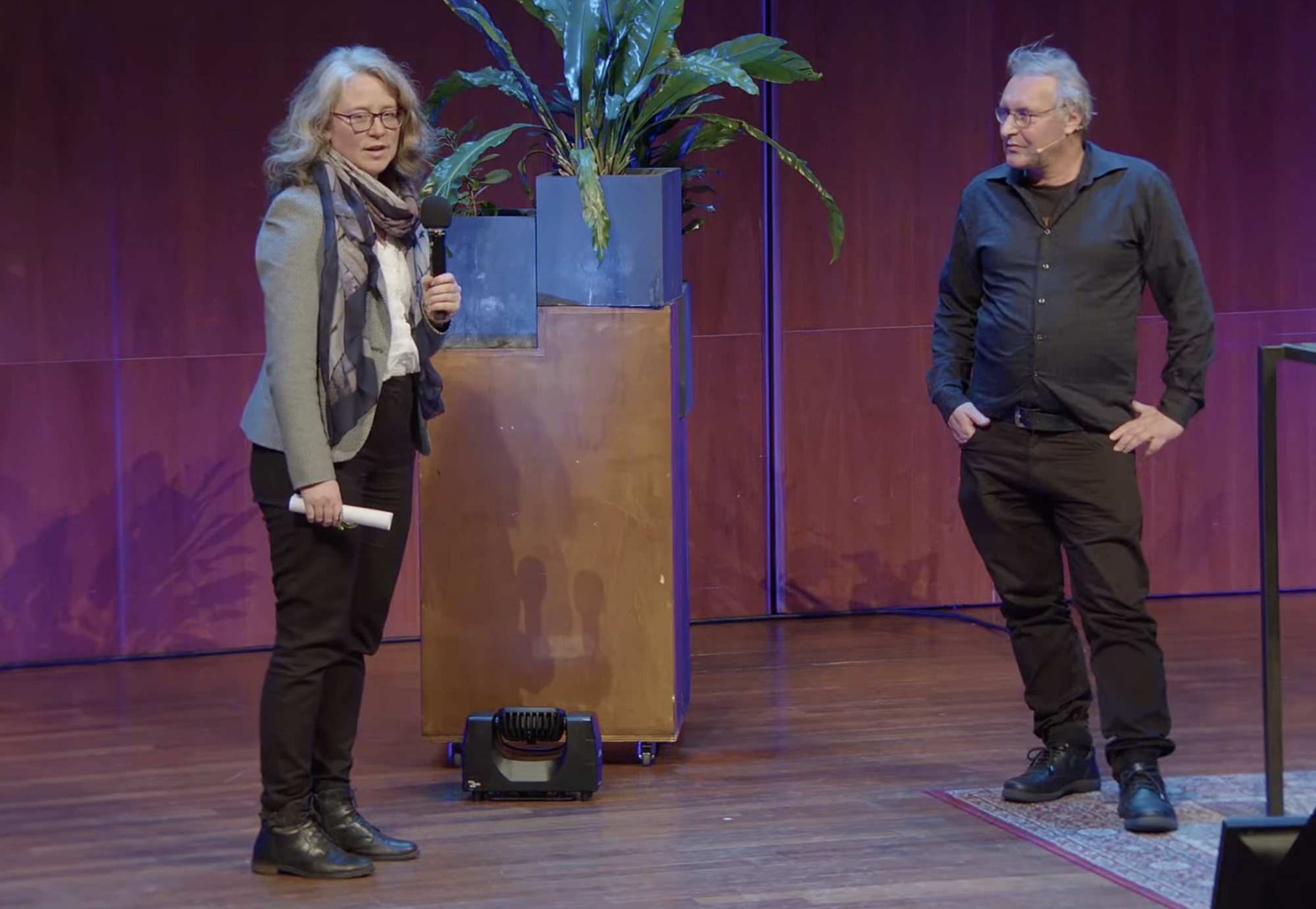Fact-finding and being independent of what others say were the reasons that Delta dived deeply into TU Delft’s relationship with China. It was a prize-winning formula.
Editor-in-chief Saskia Bonger received the prize from Kring chairman Ries Agterberg. (Screenshot: Youtube)
The deep diving, journalistic investigation by Delta’s editors Annebelle de Bruijn and Tomas van Dijk into the relationship between TU Delft and China won an award. On Thursday their article, the English version entitled How TU Delft unintentionally helps the Chinese army, won the Kring Award for the best article of the year in Dutch university and university of applied sciences media.
‘A highly informative article about a truly complicated subject about which few people have any idea and on which the Netherlands has quite a naive view point. But Delta did some excellent investigative work’, stated the jury about this first article in the China series that Delta published this spring. ‘Much research went into the story, for which knowledge of the Chinese language was essential, which had such a wide impact that it even led to Parliamentary Questions. At times quite long, but written so excitingly and is so well expressed that you continue reading. This is why Delta won.’
‘The article had a great impact both internally at TU Delft and outside’
The article won the Kring Award, the prize awarded every year by the circle of chief editors of Dutch university and university of applied sciences media for the best story in one of their media outlets. The submissions – 18 this year – are judged by an independent, expert jury. This year they were the ‘Volkskrant’ newspaper journalist Iante Sahadat, ScienceGuide Chief Editor Frans Heesters, and education journalist Anja Vink.
Chief Editor Saskia Bonger accepted the award on behalf of the editorial team. “I was already extremely proud of this series. The editorial team put in a huge effort and it had a great impact both internally at TU Delft and outside. The recognition that comes with this award is the icing on the cake for us.”
The other articles that won awards were: Fraud, disappearing evaluations and a toxic environment: how the best statistics group in the Netherlands fell apart by Leiden University’s weekly Mare magazine (2nd prize); and HvanA’s reconstruction ‘Topper of loser: hoe een sterrencultus Amfi onveilig maakte’ (in Dutch, 3rd prize). The documentary ‘Gewoon Kwetsbaar’ by Hanzemag and the article ‘Zo verloor de Radboud Universiteit het predicaat ‘Katholiek’’ (in Dutch) won honourable mentions.
Read our series about academic cooperation with China:
- The Sons: about how TU Delft inadvertently helps the Chinese army.
- The military: about Chinese military scientists who come to TU Delft to acquire knowledge for the Liberation Army.
- Striking a balance: TU Delft scientists talk about their considerations in working with Chinese counterparts.
- The history: about how the view of collaboration with China has changed over the years.
- On the hows and whys of our China investigation
Marieke Enter / Nieuwsredacteur



Comments are closed.